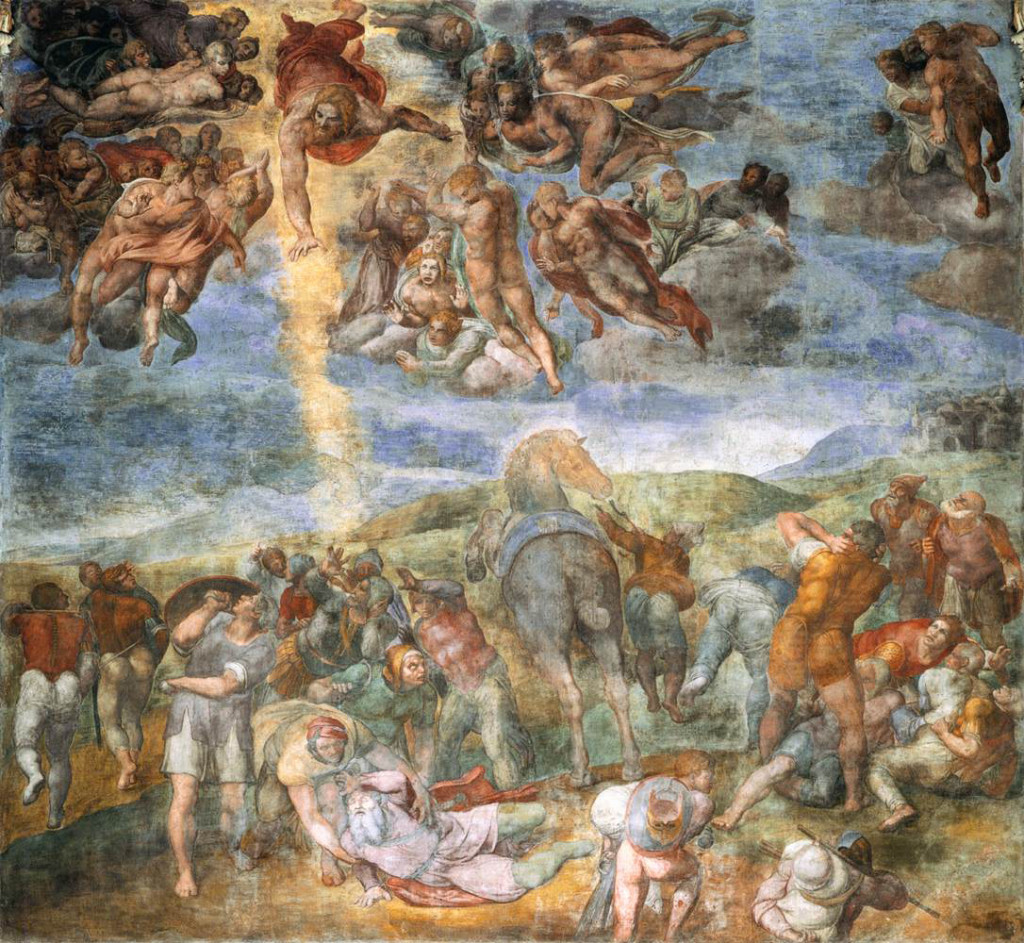
The Conversion of St. Paul, 1542–45
I have been crucified with Christ.
It is no longer I who live,
but Christ who lives in me.
Galatians 2:20
This has to be one of the most provocative statements ever made by Paul.
He essentially denies his own role as the acting ‘subject’ of his life, claiming that he has been supplanted in this capacity by Christ!
Has he? Has his ‘self’ somehow been ‘replaced’ or ‘absorbed’ into Christ that he – as an ‘active self’ – no longer exists?
We are on holy ground here, in the presence of great mystery. How are we to understand and embrace this?
Note where the Apostle begins: he describes his life in terms of a ‘death’ and ‘resurrection’. “For through the law I died to the law, so that I might live to God.’ (2:19) This ‘dying-to-the-law’ is then described as being ‘crucified with Christ’ (2:20). His point seems clear: When the Father ‘was pleased to reveal his Son’ to Paul (1:17) and he was baptized ‘into Christ’s death’ (Rom. 6:3) Paul died to his old way of life, his old way of being. He then was raised to a life that would now be ‘lived to God’, a life now lived by ‘Christ who lives in me.’
Paull goes on to say that ‘he’ continues to ‘live’ his life: ‘And the life I now live in the flesh’ – that is, in the present historical embodied moment – ‘I live by faith in the Son of God, who loved me and gave himself for me.’ ‘Faith’ in this statement is a hotly contested word. In the Greek it can mean both ‘faith in’ and ‘the faithfulness of’ someone. The question is: does the Apostle mean he lives by the ‘faithfulness of Christ’ or by ‘his faith in Christ’? My answer is, ‘why choose?’. We live ‘by-our-faith-in-the-faithfulness-of-Christ’ or we do not live at all!
But perhaps this answer gives us a clue as to how to grasp what the Apostle is saying.
We tend to think in ‘either-or’ categories rather than ‘both-and’ ones; that is, either ‘We’ live as the ‘subjects’ of our lives OR ‘Christ’ lives as the ‘subject’ of our lives. But what if it is ‘Both-and’? What if it is both ‘we-and-Christ’ living as the ‘subjects’ of our lives?
Could it be that the Apostle is provocatively speaking of the gracious, dynamic, interdependent, divine-human-partnership that has been generated by the faithfulness of Christ? Could it be that he speaks about a ‘union’ with Christ that is, at one and the same time, a ‘communion’, and not an ‘absorption’ or ‘replacement’ of our ‘selves’? A ‘union-and-communion’ which is analogous to the Union-and-Communion within the Trinity?
I told you we were on holy ground; that we were being provocatively drawn into great mystery.
Why not take a moment and contemplate this mystery; contemplate what your life would be like IF we truly believed that ‘we’ – both personally and corporately – lived our lives in and through and as this ‘gracious-dynamic-divine-human-partnership’?


